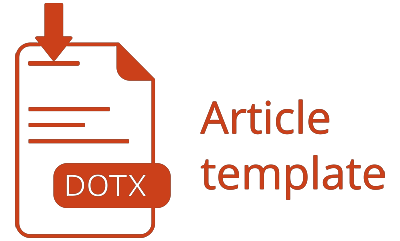Sengketa Kewenangan Penyidikan Dalam Rangka Pemberantasan Korupsi
Abstract
This research is motivated by the frequent overlapping of authorities in the investigation of corruption between the Police, the Prosecutor's Office, and the KPK. An example of a corruption case led by members of the Surakarta City DPRD for the 1999-2004 period was handled by the Surakarta Regional Police. Meanwhile, the corruption case of the former Surakarta Mayor for the 2000-2005 term was handled by the Attorney General's Office. Furthermore, the corruption case of the Deputy Governor of BI in 2008 was actually handled by the KPK. The three examples of these cases are examples of overlapping authorities between institutions in the same case, namely the investigation of criminal acts of corruption. The overlapping authority for investigating corruption is also seen in the feud between the KPK and the National Police in the SIM simulator corruption case. Given the overlapping authority in corruption, the author focuses this paper on what are the root causes of authority disputes between the Police, the Prosecutor's Office, and the KPK.To find the focus of this article, the author uses a normative juridical approach. In addition, the author also uses the principle of legal preference.In this article, the author finds that the root cause of the dispute over the authority to investigate corruption by the Police, the Prosecutor's Office and the KPK is the ambiguity of several articles in the law on authority in each institution, causing conflicts of authority that occur between investigative institutions in criminal acts of corruption. . There are three ways to resolve disputes over the authority to investigate corruption crimes between related institutions, namely; first, by amending/revoking certain articles that are disharmony or all articles of the relevant laws and regulations, by the institutions/agencies authorized to form them; This can be done by the President and approved by the DPR with the issuance of a new law. Second, by submitting a request for a judicial review to the judiciary. The third way, by using the theory of lex specialis derogat legi generali. That is, because the authority of the Police and the Prosecutor's Office in investigating corruption crimes is included in the lex generali, while the KPK is a lex specialis institution, so that if there is a dispute over authority between institutions, the KPK is the most entitled to investigate corruption in accordance with Article 50 paragraph (3). Law Number 30 of 2002 concerning the Corruption Eradication Commission reads: In the event that the Corruption Eradication Commission has started to carry out the investigation as referred to in paragraph (1), the police or the prosecutor's office are no longer authorized to carry out investigations.
References
Adji, I. S. (2007). Putusan Mahkamah Konstitusi Nomor 28/PUU-V/2007.
Anonim. (2003). UU RI No. 30 tahun 2002 Tentang Komisi Pemberantasan Tindak Pidana Korupsi & UU No. 20 Tahun 2001 Tentang Pemberantasan Tindak Pidana Korupsi, Beserta Penjelasannya. Bandung: Citra Aditya Bakti
Arifin, Z., & Masrukin, H. (2018). Analisis Kewenangan Polri Dalam Melakukan Penyidikan Penangkapan Tindak Pidana Korupsi (Studi Di Kabupaten Nganjuk). Mizan: Jurnal Ilmu Hukum, 7(2). Retrieved from https://doi.org/10.32503/mizan.v7i2.462
Asshidiqie, J. (2006). Sengketa Kewenangan Konstitusional Lembaga Negara. Jakarta: KonPers.
Husein, H. M. (1991). Penyidikan Dan Penuntutan Dalam Proses Pidana. Jakarta: Rineka Cipta.
Indonesia, Undang-Undang Tentang Hukum Acara Pidana, UU No.8, L.N. No. 76 Tahun 1981, T.L.N. No. 3209, Pasal 1 butir 2
Kaligis, O. . (2006). Pengawasan terhadap Jaksa Selaku Penyidik Tindak Pidana Korupsi. Bandung: Alumni.
Karjadi, & Soesilo. (1986). Kitab Undang-Undang Hukum AcaraPidana (nomer 8 tahun 1981). Bogor: PT Karya Nusantara.
Pasal 22 Ayat (2) Undang-Undangh Dasar 1945.
Pasal 24 C Ayat (1) Undang-Undang Dasar 1945.
Prakoso, D. (1987). Polri Sebagai Penyidik Dalam Penegakan Hukum. Jakarta: Bina Aksara.
Soekanto, S. (1985). Penelitihan Hukun Normatif. Jakarta: Rajawali Pers.
Soemitro, R. H. (1982). Metodologi Penelitian Hukum dan Jurimetri. Jakarta: Ghalia Indonesia.
Soesilo, R. (1979). Pokok-Pokok Hukum Pidana, Peraturan Umum dan Delik-Delik Khusus. Bogor: Politeia.
Soesilo, R. (1987). Penyidik, Penuntut Umum Dan Hakim Dalam Proses Hukum Acara Pidana. Jakarta: Bina Aksara.
Undang-undang Nomor 30 Tahun 2002 tentang Komisi Pemberantasan Korupsi, 2002.
Undang-undang Nomor 30 Tahun 2002 tentang Komisi Pemberantasan Korupsi, 2002
Undang-Undang Nomor 30 Tahun 2002 tentang Komisi Pemberantasan Tindak Pidana Korupsi
Undang-Undang Nomor 31 Tahun 1999 tentang Pemberantasan Tindak Pidana Korupsi
Undang-undang pasal 2 No 2 tahun 2002 tentang Kepolisian Negara Republik Indonesia
This journal provides immediate open access to its content on the principle that making research freely available to the public supports a greater global exchange of knowledge.
All articles published Open Access will be immediately and permanently free for everyone to read and download. We are continuously working with our author communities to select the best choice of license options, currently being defined for this journal as follows: Creative Commons-Non Ceomercial-Attribution-ShareAlike (CC BY-NC-SA)
 Abstract viewed = 222 times
Abstract viewed = 222 times
 PDF (Bahasa Indonesia) downloaded = 1814 times
PDF (Bahasa Indonesia) downloaded = 1814 times







